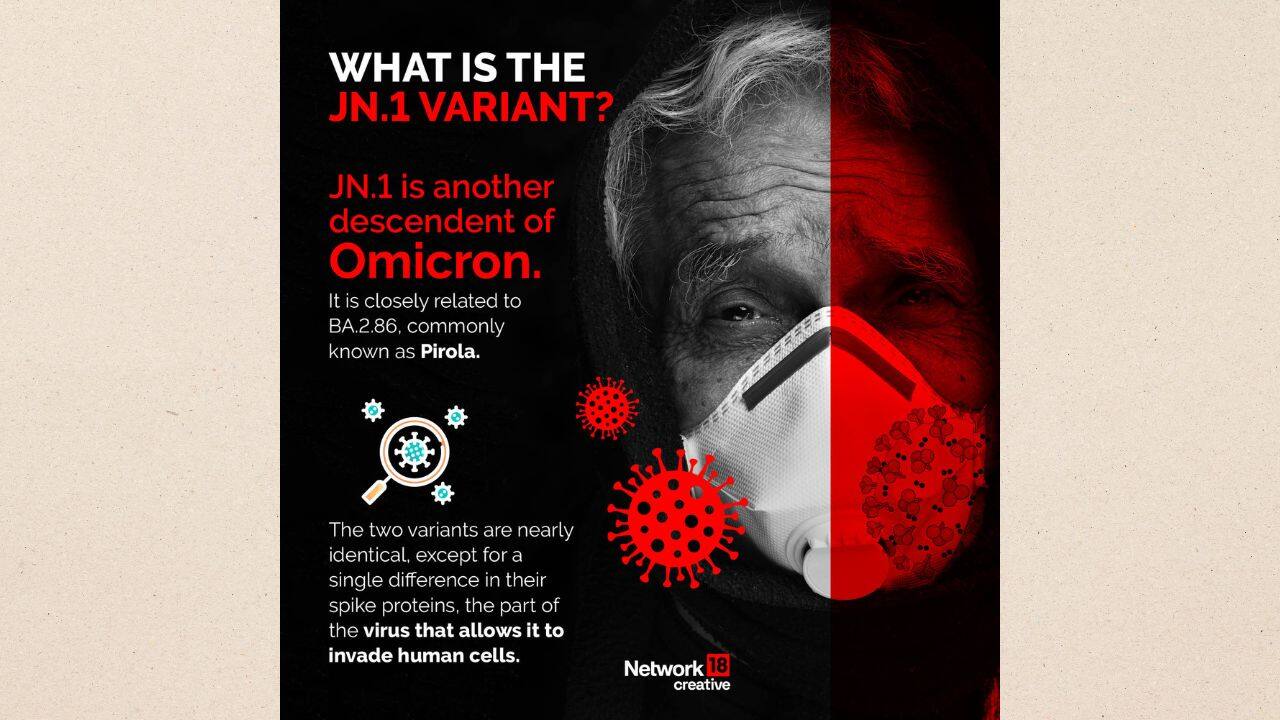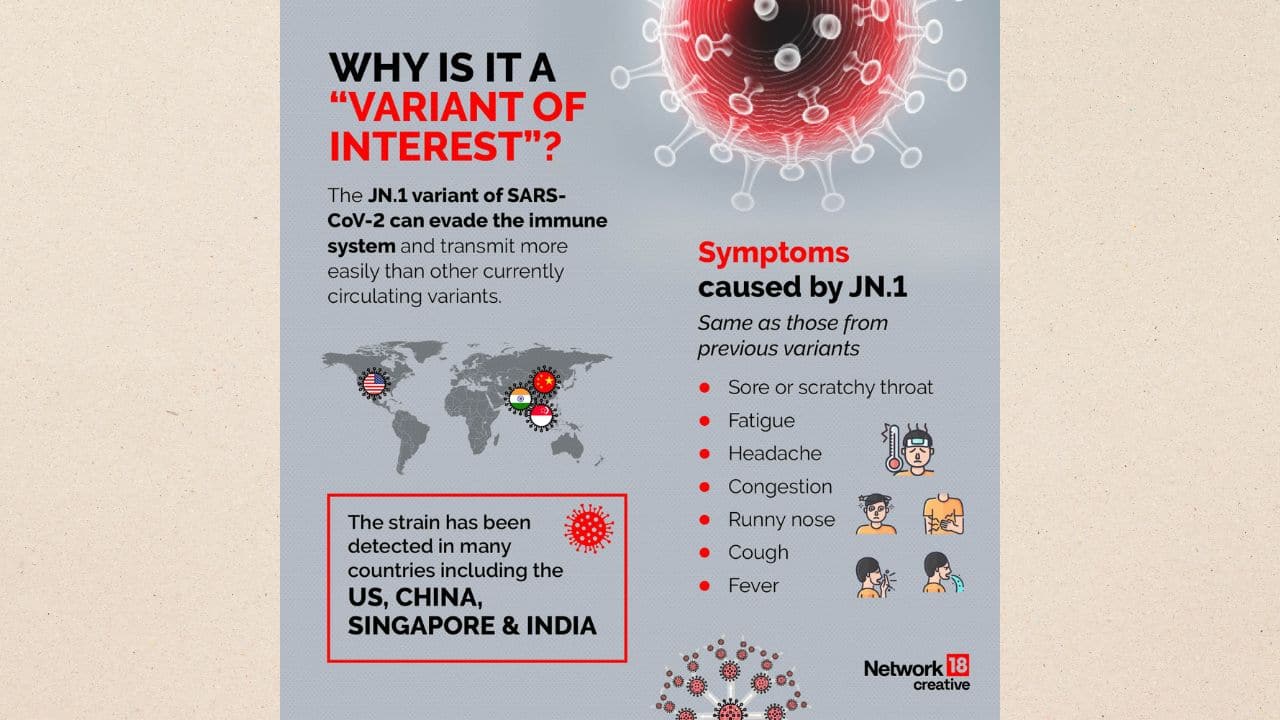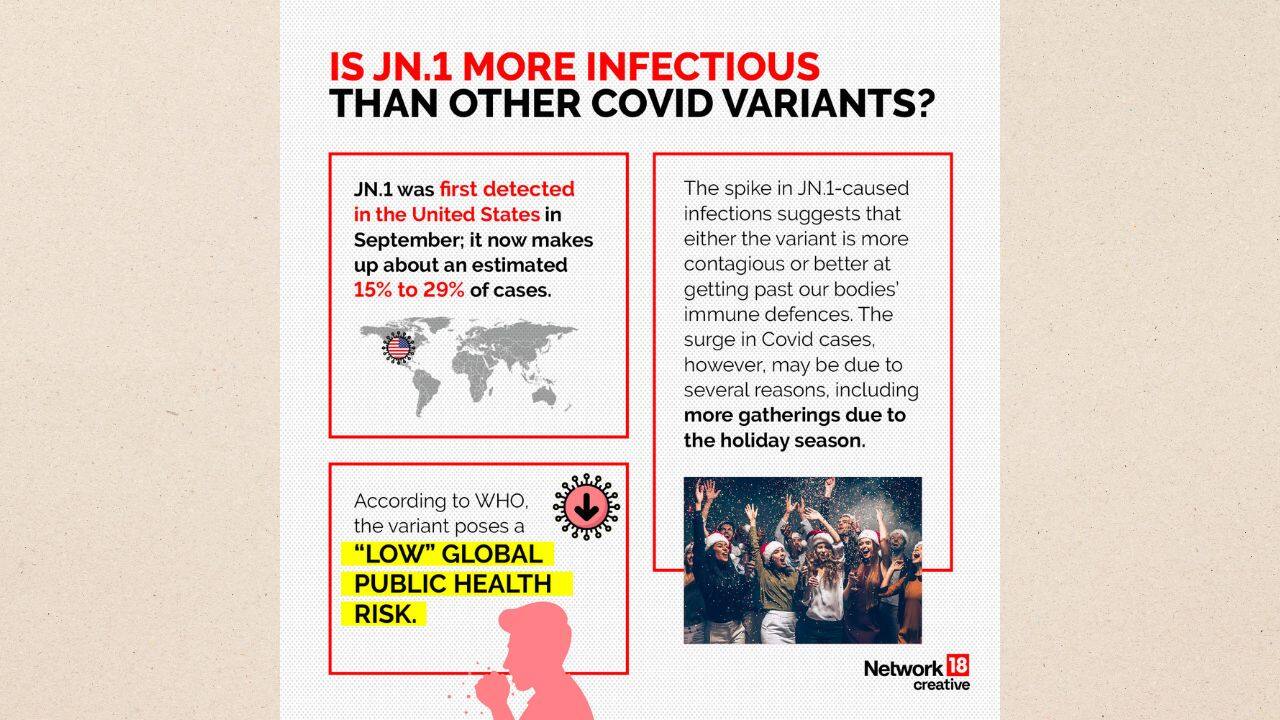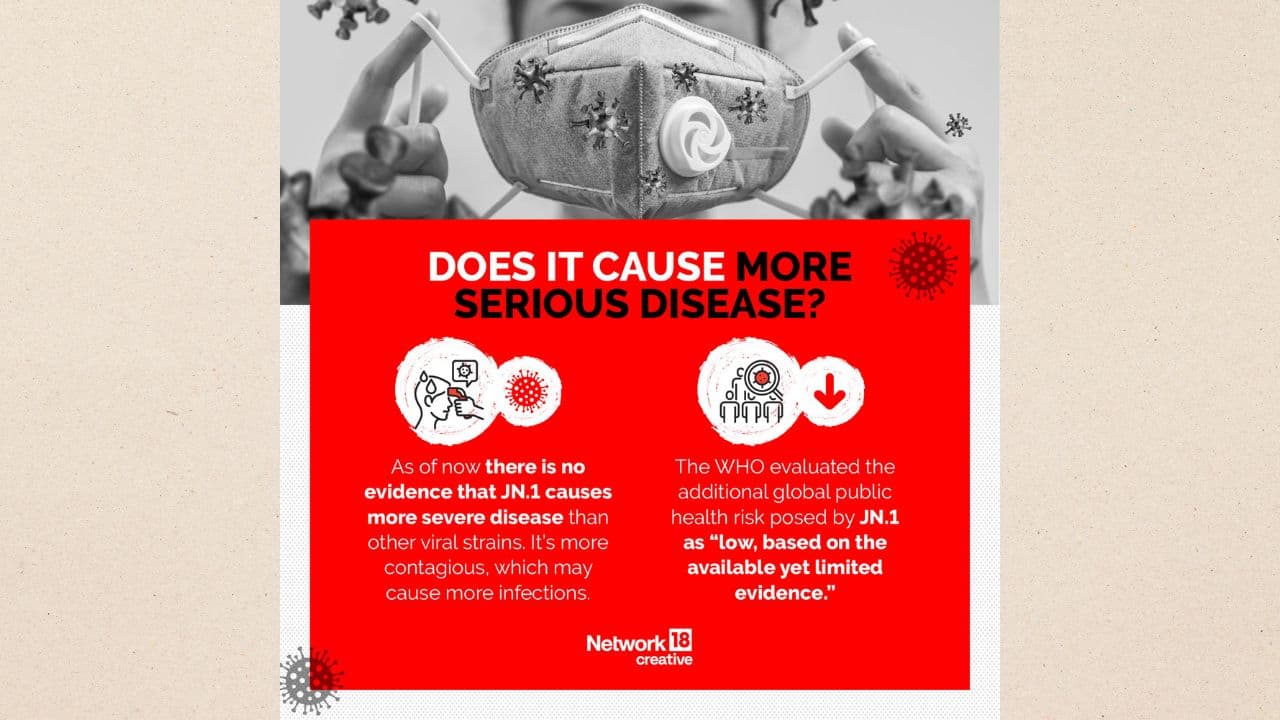Trending Topics:
- Cristiano Ronaldo
- Uzair Baloch
- Radhika Gupta
- David Solomon
- Elon Musk
WHO declares JN.1 as "variant of interest": Know everything about the virus, symptoms, and more
The discovery of this unique strain, JN.1 caused widespread concerns and worry. This Pirola descendent variety has now been found in the United States, China, and India.
1/8

Viruses are constantly evolving. These modifications are known as "mutations," and the resulting virus is known as a "variant." The WHO has declared the JN.1 coronavirus strain as a “Variant of Interest. (Image: NW18 Creative)
2/8

A “Variant of Interest" is a mutation that is believed or known to create major differences from the original strain and is widely diffused in numerous regions or countries. (Image: NW18 Creative)
3/8

Except for a single variation in their spike proteins, which allow the virus to penetrate human cells, the JN.1 and Omicron versions are almost identical. (Image: NW18 Creative)
4/8

The JN.1 SARSCoV-2 strain can bypass the immune system and spread more easily than other currently circulating versions. This is why it has become a Variant of Interest. (Image: NW18 Creative)
5/8

The increase in JN.1-caused infections, which was first observed in the United States, shows that the variety is either more communicable or better at evading our bodies' immunological defences. (Image: NW18 Creative)
6/8

There is currently no indication that JN.1 produces more severe disease than other virus strains. It's more contagious, which could lead to more infections. (Image: NW18 Creative)
7/8

According to the WHO, current vaccines will continue to protect against severe sickness caused by JN.1 and other circulating forms of the COVID-19 virus. (Image: NW18 Creative)
8/8

Till now, JN.1 has not been labelled as a variant of concern. (Image: NW18 Creative)
Discover the latest Business News, Budget 2025 News, Sensex, and Nifty updates. Obtain Personal Finance insights, tax queries, and expert opinions on Moneycontrol or download the Moneycontrol App to stay updated!






